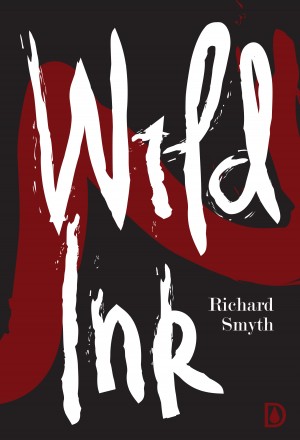You have no items in your cart. Want to get some nice things?
Go shopping As Wild Ink is the first novel by non-fiction writer Richard Smyth — the author behind Bum Fodder: An Absorbing History of Toilet Paper and English History: Strange But True — you might expect it to be more on the tentative side. Instead, what Smyth has produced is an impressive and ambitious display of lyrical prose. Overall, this is a novel which is well-achieved line-by-line but which comes together in a narrative that doesn’t quite deliver.
As Wild Ink is the first novel by non-fiction writer Richard Smyth — the author behind Bum Fodder: An Absorbing History of Toilet Paper and English History: Strange But True — you might expect it to be more on the tentative side. Instead, what Smyth has produced is an impressive and ambitious display of lyrical prose. Overall, this is a novel which is well-achieved line-by-line but which comes together in a narrative that doesn’t quite deliver.
Wild Ink follows the meandering thoughts of Albert Chaliapin, a 59-year-old who is old before his years, hospitalised for “a troublesome liver”, but still working as the cartoon editor for a peripheral literary magazine. Long-suffering Chaliapin suffers through the pain of his failing body, the inanity of his nurse Paula — who calls him “Chaplin” — and the company of his outrageous, alcohol-soaked friends Insmith, Stoop and Quissett. In a tradition of unreliable first-person narrators, humour is Chaliapin’s defence mechanism against his environment and his illness, so there is rarely a page which isn’t witty.
Smyth is strongest on big topics like death, regret and memory. He has a keen eye for the lyrical, the physical, and the comic, and can switch gears between modes effortlessly. Take these lines as Chaliapin listens to his nurse Paula talking to his nemesis — “a snake, a serpent” — Augie Stainger:
They continue to quarrel. Naturally, they do. I feel jammed fluid-ducts swell painfully in my lower back, liver, kidneys, I don’t know.
What have I brought down? In drawing together the two: what end have I engineered? The dead breathe…
The two voices are getting louder although I can no longer make out the words, and for all I know they might now be only one voice. Just one voice, shrill and sharp, like a dialling-tone, or a flatline: the note on which the world ends…
I don’t want it to finish, all of a sudden, but I’m exhausted. My eyes close.
‘You’ve tired that mother-fucker out,’ say Stainger, and laughs.
That is a lot of ground to cover in four short paragraphs, but it is navigated well. In fact, there are a lot of little literary feats here which show Smyth to be a master craftsman of the sentence. At the sentence and paragraph level, then, this novel is excellent. But as a whole — in terms of its plot and trajectory and overall meaning — it doesn’t quite live up to expectations.
Wild Ink doesn’t quite know what it wants to be: a black comedy about people on the periphery of society (that is, old, ailing, literary, alcoholic, etc), an alternative thriller about terrorism in modern-day London, a mystery about the cartoon character Citizen Wilson. It would take skill to hold all of these threads together, and Smyth almost pulls it off.
The trouble is that because the characters are set up as misfits and relics of the early twentieth-century, when the plot comes to a head with a scandal involving all of their misdeeds it is hard to believe that anyone would care.
Similarly, the subplots which see “bombs setting off all over London” and the enigmatic cartoon character Citizen Wilson (whom, ingeniously, Chaliapin suspects of being the bomber) both just fray out towards the end of the book and get left behind.
In fact, the whole premise of Chaliapin being a cartoonist and cartoon editor is left behind, which would be okay but that the novel is called Wild Ink and yet there doesn’t seem to be any real point to the cartoons. Chaliapin could just as well have been a journalist or a violinist or a darts player and the novel wouldn’t have been much different.
All of these inconsistencies add up so that, when you turn over the last page, there are a lot of unanswered questions: unanswered as in ‘not resolved at all’, rather than ‘left open for future pondering’. Some rigorous editing would have tightened up the plot, and might have removed about a quarter or the novel’s bulk so that it was a tighter read.
Despite the book’s £12 price-tag and dubious aesthetic quality (a poor cover, unfeasibly large pages reminiscent of large-print books, and chapter numbers in something like size 70 font), Smyth’s novel is definitely worth a read — as are most of the works coming out of Dead Ink — and it will be interesting to see what he produces next.
About Jonny Aldridge
Jonny Aldridge is a writer based in northeast England. His journalism and fiction have appear in Litro, 3:AM, Sabotage Reviews, and New Escapologist, among others.




